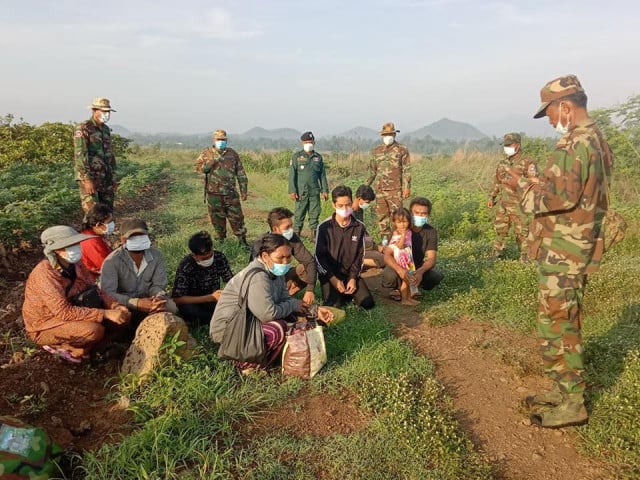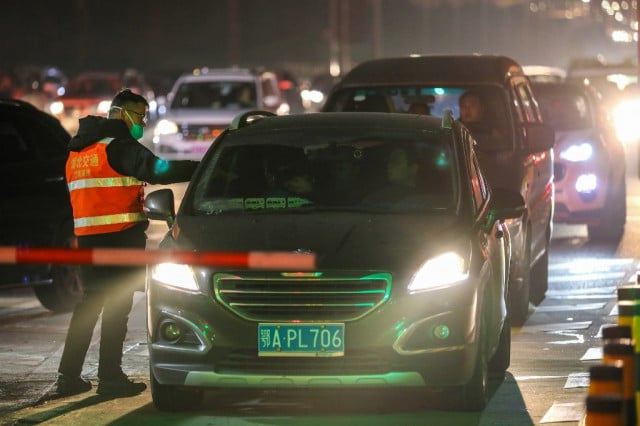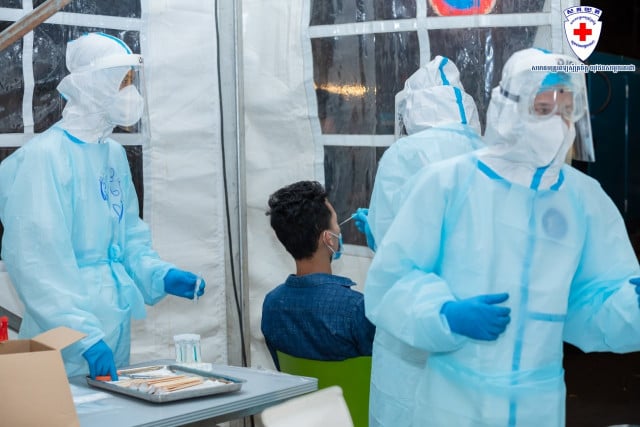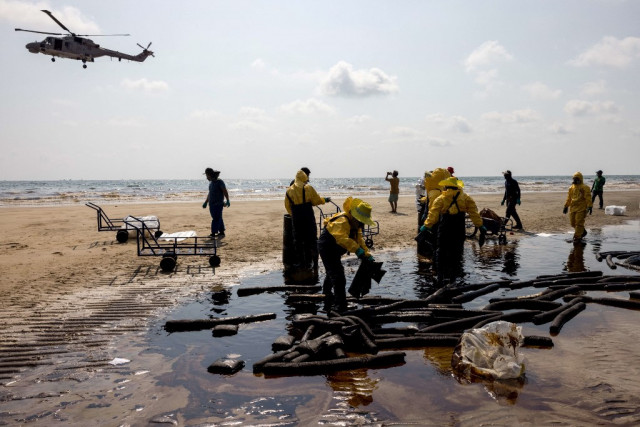Dramatic Rise in Human Trafficking in Cambodia due to COVID-19

- Sao Phal Niseiy & Lay Sopheavotey
- May 10, 2021 12:22 PM
More needs to be done to create domestic jobs and formalize the migration process, rights groups say, as a means of stamping out illegal migration and human trafficking.
PHNOM PENH--As the new wave of COVID-19 infections have brought about greater disruption across Cambodia, the government has warned that cases of human trafficking have been on the rise.
Chou Bun Eng, who is the head of the Interior Ministry's gender working group and permanent vice-chair of the National Committee for Counter Trafficking, confirmed that human trafficking cases have dramatically increased this year.
According to Bun Eng, over the first three months of 2021, there have been 85 cases of human trafficking, up from 27 cases detected in the same period last year. So far, 114 people have been arrested and face legal action in connection with the 85 cases.
This sharp rise in trafficking—especially of people—has come at a time when Cambodia has found itself almost overwhelmed by the COVID-19 outbreak that has killed 126 people as of May 10 with cases still skyrocketing.
“Traffickers have taken this opportunity as they believe that the government has been busy dealing with the COVID-19 resurgence and paid less attention to dealing with human trafficking,” said Bun Eng.
She also acknowledged that many citizens are desperate enough to cross Cambodia’s borders—specifically to get to Thailand—in search of work, despite the risks and the government’s warnings against attempting it.
“We have told them that as the COVID-19 situation has not got better, they should not attempt to get back,” Bun Eng stressed.
Between late December 2020 and May 5, more than 36,000 Cambodians have returned from Thailand, according to Keo Vanthan who serves as deputy director-general at the General Department of Immigration.
This was at a time when Thailand suffered a severe locally-transmitted outbreak of COVID-19 at the end of 2020 that saw thousands of Cambodians eager to return home, only for a similar outbreak to engulf Cambodia in February 2021.
According to the Global Report on Trafficking in Person 2020 by the United Nations Office of Drug and Crime, there are multiple pre-existing factors which have been taken advantage of by traffickers, but the economic need has been the main driving force, accounting for 51 percent of cases.
Cambodia is also not exempt from this global trend and as the ongoing pandemic has wreaked havoc on both the economy and the social wellbeing of people across the country, more people have grown desperate.
Mao Mab, head of the women and children's division at human rights group Adhoc, agreed that financial difficulties for many Cambodians is a factor in the sudden rise in human trafficking, with the loss of income forcing people to risk their lives for work abroad.
“We have seen this issue is increasing and one of the key factors that pressures people into doing it is the loss and suspension of employment over the first few months of 2021 due to the pandemic,” she said. “So they lost their incomes, but they still have to repay their debts. Their livelihoods have been greatly affected and migrating for work is the only choice.”
Mab also warned that local smugglers have been taking people’s remaining money and promising them a chance of work abroad, but these promises don’t work out as people expect.
“Trafficking masterminds have been persuading people who have been less educated, that they can earn more going to work abroad,” she said.
More Action Needed
When asked if there will be more measures to tackle the trafficking in person, Bun Eng explained that the government, especially the Ministry of the Interior, has been stepping up efforts to deal with the issue, but was vague on the details.
“We have had stringent measures in place. We also try to investigate and find out if there are brokers who convince and take advantage of our people,” she said, pointing out the government has already taken strong action against and held those wrongdoers accountable regardless of their backgrounds and positions.
In February 2021, a police inspector in Battambang Province who was accused of being involved in smuggling workers to Thailand, was removed from his position and detained on human trafficking charges.
She added that the government and local authorities have also strengthened cooperation and border control to make sure that the illegal border crossing activities could be effectively thwarted.
“What we have been doing is to ensure that vulnerable people won’t fall victims of this trafficking,” Bun Eng said.
Mab of Adhoc recognized the government’s efforts, particularly in taking tougher measures against smugglers, but noted that corruption played a part in trafficking.
“We have seen they have been trying, but without corruption, nobody can get in or out of the country illegally or through brokers,” she said, emphasizing that more needs to be done to sustain the effort in tackling human trafficking.
“This can’t be done in one shot, there isn’t a single instruction from higher authorities that will stop it—the work must be ongoing and sustainable,” she said. “And regardless of who they are [perpetrators], they need to be held accountable.”
She said that addressing the root causes of trafficking—like the lack of jobs in Cambodia—is also necessary and that the current situation means leaving the country for work is inevitable.
“That’s why the process of issuing people legal documents needs to be faster and more transparent,” she said.
Another task, she added, the government needs to pay greater attention to is enhancing domestic job creation, particularly in the agricultural sector to help people improve their livelihoods, which eventually averts migration.
“People who choose to do farming in rural areas have been complaining about the limited or lack of market at all for their produces. Thus, this is the main responsibility the government needs to handle,” she concluded.
Additional reporting by Lay Sopheavotey















